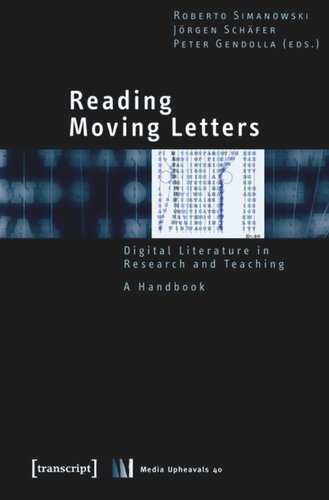

Most ebook files are in PDF format, so you can easily read them using various software such as Foxit Reader or directly on the Google Chrome browser.
Some ebook files are released by publishers in other formats such as .awz, .mobi, .epub, .fb2, etc. You may need to install specific software to read these formats on mobile/PC, such as Calibre.
Please read the tutorial at this link: https://ebookbell.com/faq
We offer FREE conversion to the popular formats you request; however, this may take some time. Therefore, right after payment, please email us, and we will try to provide the service as quickly as possible.
For some exceptional file formats or broken links (if any), please refrain from opening any disputes. Instead, email us first, and we will try to assist within a maximum of 6 hours.
EbookBell Team

4.3
28 reviews»Digital media« is increasingly finding its way into the discussions of the humanities classroom. But while there is a number of grand theoretical texts about digital literature there as yet is little in the way of resources for discussing the down-to-earth practices of research, teaching, and curriculum necessary for this work to mature. This book presents contributions by scholars and teachers from different countries and academic environments who articulate their approach to the study and teaching of digital literature and thus give a broader audience an idea of the state-of-the-art of the subject matter also in international comparison.